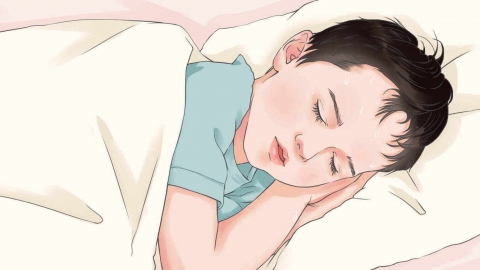What medicine is good for children with diarrhea?
Generally speaking, diarrhea refers to loose stools or an increased frequency of bowel movements. Diarrhea in children may be caused by various factors such as a cold abdomen, improper diet, lactose intolerance, acute gastroenteritis, rotavirus enteritis, and others. It is recommended to seek timely medical attention and use medications such as Smectite Powder, Bifidobacterium Triple Viable Powder, and Licheniform Bacillus Viable Capsules under the guidance of a physician. Detailed explanations are as follows:

1. Cold Abdomen
Exposure of a child's abdomen to cold weather or inadequate warmth can accelerate intestinal motility, thus causing diarrhea. Pay attention to keeping the child's abdomen warm; avoid dressing the child too lightly or allowing the abdomen to be exposed. Usually, no medication is necessary. Ensure the child is properly covered while sleeping to avoid kicking off the covers and subsequent exposure to cold.
2. Improper Diet
Feeding infants with porridge or paste too early or excessively, not timely introducing complementary foods, or suddenly changing the type of food can lead to gastrointestinal discomfort and digestive disturbances in children, thus causing diarrhea. Medication is generally unnecessary. It is recommended to appropriately introduce complementary foods, starting with small amounts and gradually increasing the quantity.
3. Lactose Intolerance
Lactose intolerance may be due to a lack of lactase enzyme in the child's body, which prevents the digestion of lactose found in dairy products, leading to fermentation of lactose in the intestines and resulting in diarrhea. Diarrhea caused by lactose intolerance is usually accompanied by symptoms such as bloating and abdominal pain. Additional manifestations may include increased flatulence and hyperactive bowel sounds. Medications such as Smectite Powder, Bifidobacterium Triple Viable Powder, and Bacillus Subtilis and Enterococcus Faecalis Powder can be used for treatment under a doctor's advice.
4. Acute Gastroenteritis
Acute gastroenteritis may be associated with the ingestion of unhygienic food by children, leading to bacterial or viral infections affecting the gastrointestinal tract. Inflammation of the gastrointestinal tract causes intestinal dysfunction, resulting in diarrhea. Symptoms may include nausea and vomiting. Treatment should follow medical advice to use medications such as Licheniform Bacillus Viable Capsules, Racecadotril Granules, and Enteritis Ling Granules.
5. Rotavirus Enteritis
Rotavirus enteritis is usually caused by rotavirus infection, commonly occurring in autumn, and is one of the common causes of diarrhea in children. Rotavirus infection damages the intestinal mucosa, thereby causing diarrhea in children. Symptoms may also include fever, abdominal pain, and dehydration. Medications such as Oral Rehydration Salts, DL-Anisodamine Tablets, and Loperamide Hydrochloride Capsules can be used under medical guidance.
When a child has diarrhea, the cause should first be clearly identified, and then targeted treatment should be conducted under the guidance of a physician. At the same time, attention should be paid to maintaining a bland and easily digestible diet for the child, avoiding the intake of raw, cold, greasy, and irritating foods.







